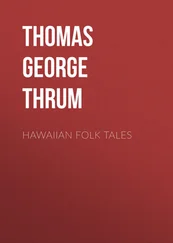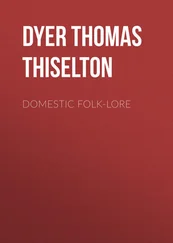Thomas Dyer - Folk-lore of Shakespeare
Здесь есть возможность читать онлайн «Thomas Dyer - Folk-lore of Shakespeare» — ознакомительный отрывок электронной книги совершенно бесплатно, а после прочтения отрывка купить полную версию. В некоторых случаях можно слушать аудио, скачать через торрент в формате fb2 и присутствует краткое содержание. Жанр: foreign_antique, foreign_prose, на английском языке. Описание произведения, (предисловие) а так же отзывы посетителей доступны на портале библиотеки ЛибКат.
- Название:Folk-lore of Shakespeare
- Автор:
- Жанр:
- Год:неизвестен
- ISBN:нет данных
- Рейтинг книги:4 / 5. Голосов: 1
-
Избранное:Добавить в избранное
- Отзывы:
-
Ваша оценка:
- 80
- 1
- 2
- 3
- 4
- 5
Folk-lore of Shakespeare: краткое содержание, описание и аннотация
Предлагаем к чтению аннотацию, описание, краткое содержание или предисловие (зависит от того, что написал сам автор книги «Folk-lore of Shakespeare»). Если вы не нашли необходимую информацию о книге — напишите в комментариях, мы постараемся отыскать её.
Folk-lore of Shakespeare — читать онлайн ознакомительный отрывок
Ниже представлен текст книги, разбитый по страницам. Система сохранения места последней прочитанной страницы, позволяет с удобством читать онлайн бесплатно книгу «Folk-lore of Shakespeare», без необходимости каждый раз заново искать на чём Вы остановились. Поставьте закладку, и сможете в любой момент перейти на страницу, на которой закончили чтение.
Интервал:
Закладка:
“As I out rode this endenes night,
Of three joli sheppards I sawe a syght,
And all aboute there fold a stare shone bright,
They sang terli terlow,
So mereli the sheppards their pipes can blow.”
In Scotland 262 262 Chambers’s “Popular Rhymes of Scotland,” 1870, p. 192.
and the north of England the peasantry say that if one is desirous of knowing what the lark says, he must lie down on his back in the field and listen, and he will then hear it say:
“Up in the lift go we,
Tehee, tehee, tehee, tehee!
There’s not a shoemaker on the earth
Can make a shoe to me, to me!
Why so, why so, why so?
Because my heel is as long as my toe.”
Magpie. It was formerly known as magot-pie, probably from the French magot , a monkey, because the bird chatters and plays droll tricks like a monkey. It has generally been regarded with superstitious awe as a mysterious bird, 263 263 See “English Folk-Lore,” p. 81.
and is thus alluded to in “Macbeth” (iii. 4):
“Augurs and understood relations, have
By magot-pies, and choughs, and rooks, brought forth
The secret’st man of blood.”
And again, in “3 Henry VI.” (v. 6), it is said:
“chattering pies in dismal discords sung.”
There are numerous rhymes 264 264 Henderson’s “Folk-Lore of Northern Counties,” p. 127.
relating to the magpie, of which we subjoin, as a specimen, one prevalent in the north of England:
“One is sorrow, two mirth,
Three a wedding, four a birth,
Five heaven, six hell,
Seven the de’il’s ain sell.”
In Devonshire, in order to avert the ill-luck from seeing a magpie, the peasant spits over his right shoulder three times, and in Yorkshire various charms are in use. One is to raise the hat as a salutation, and then to sign the cross on the breast; and another consists in making the same sign by crossing the thumbs. It is a common notion in Scotland that magpies flying near the windows of a house portend a speedy death to one of its inmates. The superstitions associated with the magpie are not confined to this country, for in Sweden 265 265 Thorpe’s “Northern Mythology,” vol. ii. p. 34; Brand’s “Pop. Antiq.,” 1849, pp. 215, 216; see also Harland and Wilkinson’s “Lancashire Folk-Lore,” 1867, pp. 143, 145.
it is considered the witch’s bird, belonging to the evil one and the other powers of night. In Denmark, when a magpie perches on a house it is regarded as a sign that strangers are coming.
Martin. The martin, or martlet, which is called in “Macbeth” (i. 6) the “guest of summer,” as being a migratory bird, has been from the earliest times treated with superstitious respect – it being considered unlucky to molest or in any way injure its nest. Thus, in the “Merchant of Venice” (ii. 9), the Prince of Arragon says:
“the martlet
Builds in the weather, on the outward wall,
Even in the force and road of casualty.”
Forster 266 266 “Atmospherical Researches,” 1823, p. 262.
says that the circumstance of this bird’s nest being built so close to the habitations of man indicates that it has long enjoyed freedom from molestation. There is a popular rhyme still current in the north of England:
“The martin and the swallow
Are God Almighty’s bow and arrow.”
Nightingale. The popular error that the nightingale sings with its breast impaled upon a thorn is noticed by Shakespeare, who makes Lucrece say:
“And whiles against a thorn thou bear’st thy part
To keep thy sharp woes waking.”
In the “Passionate Pilgrim” (xxi.) there is an allusion:
“Everything did banish moan,
Save the nightingale alone.
She, poor bird, as all forlorn,
Lean’d her breast up-till a thorn,
And there sung the dolefull’st ditty,
That to hear it was great pity.”
Beaumont and Fletcher, in “The Faithful Shepherdess” (v. 3), speak of
“The nightingale among the thick-leaved spring,
That sits alone in sorrow, and doth sing
Whole nights away in mourning.”
Sir Thomas Browne 267 267 Sir Thomas Browne’s Works, 1852, vol. i. p. 378.
asks “Whether the nightingale’s sitting with her breast against a thorn be any more than that she placeth some prickles on the outside of her nest, or roosteth in thorny, prickly places, where serpents may least approach her?” 268 268 See “Book of Days,” vol. i. p. 515.
In the “Zoologist” for 1862 the Rev. A. C. Smith mentions “the discovery, on two occasions, of a strong thorn projecting upwards in the centre of the nightingale’s nest.” Another notion is that the nightingale never sings by day; and thus Portia, in “Merchant of Venice” (v. 1), says:
“I think,
The nightingale, if she should sing by day,
When every goose is cackling, would be thought
No better a musician than the wren.”
Such, however, is not the case, for this bird often sings as sweetly in the day as at night-time. There is an old superstition 269 269 Southey’s “Commonplace Book.” 5th series. 1851, p. 305.
that the nightingale sings all night, to keep itself awake, lest the glow-worm should devour her. The classical fable 270 270 Ovid’s “Metamorphoses,” bk. vi. ll. 455-676; “Titus Andronicus,” iv. 1.
of the unhappy Philomela turned into a nightingale, when her sister Progne was changed to a swallow, has doubtless given rise to this bird being spoken of as she ; thus Juliet tells Romeo (iii. 5):
“It was the nightingale, and not the lark,
That pierc’d the fearful hollow of thine ear;
Nightly she sings on yon pomegranate tree;
Believe me, love, it was the nightingale.”
Sometimes the nightingale is termed Philomel, as in “Midsummer-Night’s Dream” (ii. 2, song): 271 271 Cf. “Lucrece,” ll. 1079, 1127.
“Philomel, with melody,
Sing in our sweet lullaby.”
Osprey. This bird, 272 272 See Yarrell’s “History of British Birds,” 1856, vol. i. p. 30; Nares’s “Glossary,” vol. ii. p. 620; also Pennant’s “British Zoology;” see Peele’s Play of the “Battle of Alcazar” (ii. 3), 1861, p. 28.
also called the sea-eagle, besides having a destructive power of devouring fish, was supposed formerly to have a fascinating influence, both which qualities are alluded to in the following passage in “Coriolanus” (iv. 7):
“I think he’ll be to Rome,
As is the osprey to the fish, who takes it
By sovereignty of nature.”
Drayton, in his “Polyolbion” (song xxv.), mentions the same fascinating power of the osprey:
“The osprey, oft here seen, though seldom here it breeds,
Which over them the fish no sooner do espy,
But, betwixt him and them by an antipathy,
Turning their bellies up, as though their death they saw,
They at his pleasure lie, to stuff his gluttonous maw.”
Ostrich. The extraordinary digestion of this bird 273 273 Called estridge in “1 Henry IV.” iv. 1.
is said to be shown by its swallowing iron and other hard substances. 274 274 See Brand’s “Pop. Antiq.,” 1849, vol. iii. p. 365.
In “2 Henry VI.” (iv. 10), the rebel Cade says to Alexander Iden: “Ah, villain, thou wilt betray me, and get a thousand crowns of the king by carrying my head to him; but I’ll make thee eat iron like an ostrich, and swallow my sword like a great pin, ere thou and I part.” Cuvier, 275 275 “Animal Kingdom,” 1829, vol. viii. p. 427.
speaking of this bird, says, “It is yet so voracious, and its senses of taste and smell are so obtuse, that it devours animal and mineral substances indiscriminately, until its enormous stomach is completely full. It swallows without any choice, and merely as it were to serve for ballast, wood, stones, grass, iron, copper, gold, lime, or, in fact, any other substance equally hard, indigestible, and deleterious.” Sir Thomas Browne, 276 276 See Sir Thomas Browne’s Works, 1852, vol. i. pp. 334-337.
writing on this subject, says, “The ground of this conceit in its swallowing down fragments of iron, which men observing, by a forward illation, have therefore conceived it digesteth them, which is an inference not to be admitted, as being a fallacy of the consequent.” In Loudon’s “Magazine of Natural History” (No. 6, p. 32) we are told of an ostrich having been killed by swallowing glass.
Интервал:
Закладка:
Похожие книги на «Folk-lore of Shakespeare»
Представляем Вашему вниманию похожие книги на «Folk-lore of Shakespeare» списком для выбора. Мы отобрали схожую по названию и смыслу литературу в надежде предоставить читателям больше вариантов отыскать новые, интересные, ещё непрочитанные произведения.
Обсуждение, отзывы о книге «Folk-lore of Shakespeare» и просто собственные мнения читателей. Оставьте ваши комментарии, напишите, что Вы думаете о произведении, его смысле или главных героях. Укажите что конкретно понравилось, а что нет, и почему Вы так считаете.












